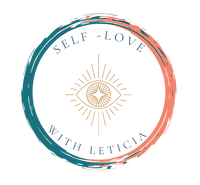
By: Catherine Daleo
Reading time: 15-17 minutes
In our hectic, day-to-day lives we often forget to spend some time on ourselves. As a result, we tire ourselves, over-work ourselves, and often forget ourselves. Perhaps you have felt like you’ve been in a rut recently, and desperately feel that you need a break, but don’t have the time for it. Sometimes we push ourselves to the limit and aren’t aware of the exhaustion that we’ve taken on. If you start to feel this way or have been keeping up that maximum effort for a while, consider one or some of the following ways in which you can show yourself a little love and regain some of your energy and more. Some of these you may already do, and some you may not have considered.
This series will consist of three parts; the first with a focus on restoring energy and health; the second will be on ways of restoring creativity and imagination; and the final part will focus on ways to regain your organization, focus, and control.
Restoring Energy and Health
Get into A Good Sleep Schedule
Few of us, it seems, work a typical 9-5 job. Some people work from six in the morning until three in the afternoon, and some people work two until ten at night. And there are those that perform the incredible task of working a graveyard shift, to whom, I salute and raise my cup of coffee to them at ten in the morning as you sleep while I just woke up. And, I like many other work two jobs when given the opportunity, even while going to school full time.
Whatever our schedule or situation, we must remember to get enough rest. As such, a good practice to get into is maintaining a proper sleep schedule. While we think we can handle only getting 5 or 6 hours of sleep a night for a prolonged period, it wreaks havoc on our bodies and particularly our minds. Your mental health is worth more filling every waking hour with as much as you possibly can do.
To get into a better bedtime routine, start going to bed around the same time, every time, as best as you can manage given your schedule, as well as the time you wake up. Try to get at least 7-8 hours of sleep and keep this consistent. It’s best if in the time shortly before going to bed you do not look at a screen, such as your phone or a computer. The blue light in these devices affects our bodies ability to prepare ourselves for sleep. Use this time for something like reading a book, writing down your goals for the next day, or writing in a journal. Most importantly, STOP HITTING YOUR SNOOZE BUTTON! My suggestion is to get a basic alarm clock and set it across from your room. Get up as soon as it goes off and get some light into your room to wake you up. Try not to climb back into bed. The extra 5-10 minutes really does no good for you. Do something to wake you up; stretch, wash your face, take a shower, make coffee, whatever it takes to stay awake. If it’s hard for you to wake up, like it is for me, having a task to do when you get up helps a lot to stay up. Recall Newton’s Law of Motion; a body at rest tends to stay at rest, while a body in motion tends to stay in motion. So, stay in motion!
Work on this every day and enjoy all the extra time you have that won’t be wasted on over-sleeping. Lastly, as an extension of your bedtime routine, do the things you usually do after you’ve gotten up to save more time for what you want to do before you get up for work or school. Prepare your lunch for the next day, set out your clothes, have your coffee machine (or French press) ready to go, and have your bags or backpack ready to go. Now you can spend time at breakfast in the morning, go for a walk with your dog, meditate, or do whatever you want. Keep this up for a couple of weeks and you’re sure to see a noticeable difference in your energy levels.
Eat Healthier and Eat at Home
In our busy lives, we often confront ourselves with the decision of stopping somewhere for a quick dinner on our way home or go home and spend an hour or so prepping and cooking food. We often pick the fast-food because we think we don’t have the time. I’m here to tell you that it’s possible to make time for a home-cooked meal, and still do all the other things on your to-do list. Plus, not only can you save money by making your meals at home more, but it will also boost your energy levels as you’ll most likely be eating healthier than if you went to Taco Bell (no disrespect, of course – I love me some Doritos-Locos tacos).
To begin with, if you feel particularly pressed for time, it’s always good to food prep. You can do this before bed or before work, whenever is best for you. Have all your ingredients cut up, seasoned or marinated as needed, and ready to be cooked. You can even do this for a couple of days in advance depending on the ingredients and how long they last for in the fridge cut up. Whatever your food preferences, be you an herbivore or carnivore, make sure you have a good balance in your diet. Which means eat your veggies! And that doesn’t mean just plain lettuce for a salad. Throw some spinach or kale in there and cook some broccoli or asparagus with your meals. Vegetables have a lot of nutrients like calcium and fiber in them. If you choose to drink milk alternatives, broccoli and spinach are great sources of calcium.
Continuing, if you do eat meat, consider eating less red meat, and more fish or chicken. Not only are these healthier choices, but when you compare the levels of methane released by raising other food animals compared to raising cattle, there is a major difference. So, don’t just do it for your health, do it as a small part in helping the planet.
Furthermore, use more spices and less salt. One thing I’ve done lately is to get those small herb plants sold outside the store or in the produce section (like rosemary and oregano) and keep them at home and water them so they’re freshly available for a while. Many kinds of herbs and vegetables can be regrown right in your fridge or kitchen. Or you can just buy a bottle of dried herbs, whatever your preference. So, cut back on the sodium, and experiment with some new flavors.
Lastly, try not to eat a lot or anything heavy right before bed, as it won’t digest well while you’re laying down. Set aside a portion of your dinner while you’re serving yourself to bring for lunch the next day or eat for breakfast. This will take away the temptation to go out and get food on your break and save you some money too. Whatever your diet, so long as it’s not an unhealthy one (like not eating enough or eating too much), eating at home will restore your energy, and keep you from wasting your money on food that isn’t worthy of your stomach. Besides, making food is fun, especially when you have someone to do it with you. It’s a wonderful way to spend time with your family, a friend, or a partner, and talk about your day. And, it can be an enjoyable experience to learn how to make new dishes and perfect them over time.
Drink More Water!
Many of us get up and have coffee first thing in the morning. And some of us have an additional two or three coffees throughout the day. Or maybe you drink soda or energy drinks regularly every day. I went through a phase where I drank McDonald’s ice coffee 2-3 times a day. Whatever our daily drink is, many of us forgo drinking water as often as we do with other beverages these days. And while you may not realize it, you’re probably dehydrated. And dehydration can make you tired, make you hungry, and even give you migraines. So, drink more water, for your health! If you really don’t like drinking plain water, you can always mix it up by adding fruit and herbs to your daily water regimen. I have a drink infuser that I can make fruit water in things and steep overnight in the fridge. I particularly enjoy making peach-strawberry, mango-strawberry, and cucumber-lemon infused waters, all with some fresh mint leaves added. I’ve been drinking so much more water now!
Furthermore, drink water when you wake up, and when you go to bed. For those of you that drink coffee first thing in the morning, try to remember to drink some water first, and preferably eat something prior as well. This is to avoid inflammation in the stomach from the sudden intake of acidity from our morning elixir of life and helps to avoid getting an upset stomach later in the day. Drinking water before bed helps to calm your body as well as your blood pressure.
And lastly, if possible, drink filtered water in some form or another. While our tap water is otherwise safe to drink, some may want to consider the fact that certain things are present in our water supply because it can’t be filtered out. This includes pharmaceuticals from people flushing old medicine down the drain, and more recently discovered, microplastics from plastic that are broken down in various forms to microscopic particles; these have even been discovered in many brands of bottled water. If you do decide to exclusively drink bottled water (filtered water can be pricey sometimes), just make sure you recycle your bottles! We don’t need any more plastic in the ocean, or in our drinking water.
Do a Cleanse or a Fast
Sometimes the reason we’re feeling tired, have low energy, or don’t feel up to par, is because of our diet. Many of us aren’t eating as healthy as we should be, and most of us probably aren’t eating enough fruits and vegetables either. Besides eating healthier and making dietary changes, you might also consider doing a cleanse of some sort or doing fasting sessions.
When it comes to cleanses, there are quite a few options. You can make smoothies with a bunch of fruits and vegetables on a daily basis or as your main food for a set amount of time. I’ve had some friends who do different kinds of shot cleanses that they swear by, including ginger root shots or apple cider vinegar shots.
For any kind of cleanse that you decide to do though, make sure you research it thoroughly before starting it. Also, consider talking with your doctor about any plans to do a cleanse, especially if you’re pregnant or breastfeeding.
When it comes to fasting, there is evidence that this practice can improve not only your health but also your cognitive abilities. Some people report better memory function, concentration, and problem-solving abilities, as well as a stronger sense of clarity and awareness. Fasting usually consists of forgoing any food or drink that contains calories, sugar, fats, etc. in them. If you’ve ever had to do a blood test or have gone under anesthesia for some procedure, you might recall having to fast prior to the event. Luckily, you can be more flexible with the time windows when you’re doing it for your own personal health reasons.
Depending on your goals or purposes for fasting, the time you fast for will vary. A friend of mine who does regular intermittent fasts will do them every couple of days for about 16-18 hours. Some people do it for 24 hours, and some even do it for a couple of days at a time. Some people consumer absolutely nothing but water the entire fast, and others compensate for the emptiness by having black coffee, certain teas that work for fasts, certain fruit Popsicles, and even chicken, beef, or vegetable stocks.
Whatever you decide as your fasting plan, make sure it has been decided based on research and careful consideration. You may also want to consult your doctor, especially if you’re pregnant or breastfeeding. Fasting can be healthy and offer great benefits to you, but if it is not done properly, your body will be in starvation mode rather than the fasting mode, which can cause health issues.



